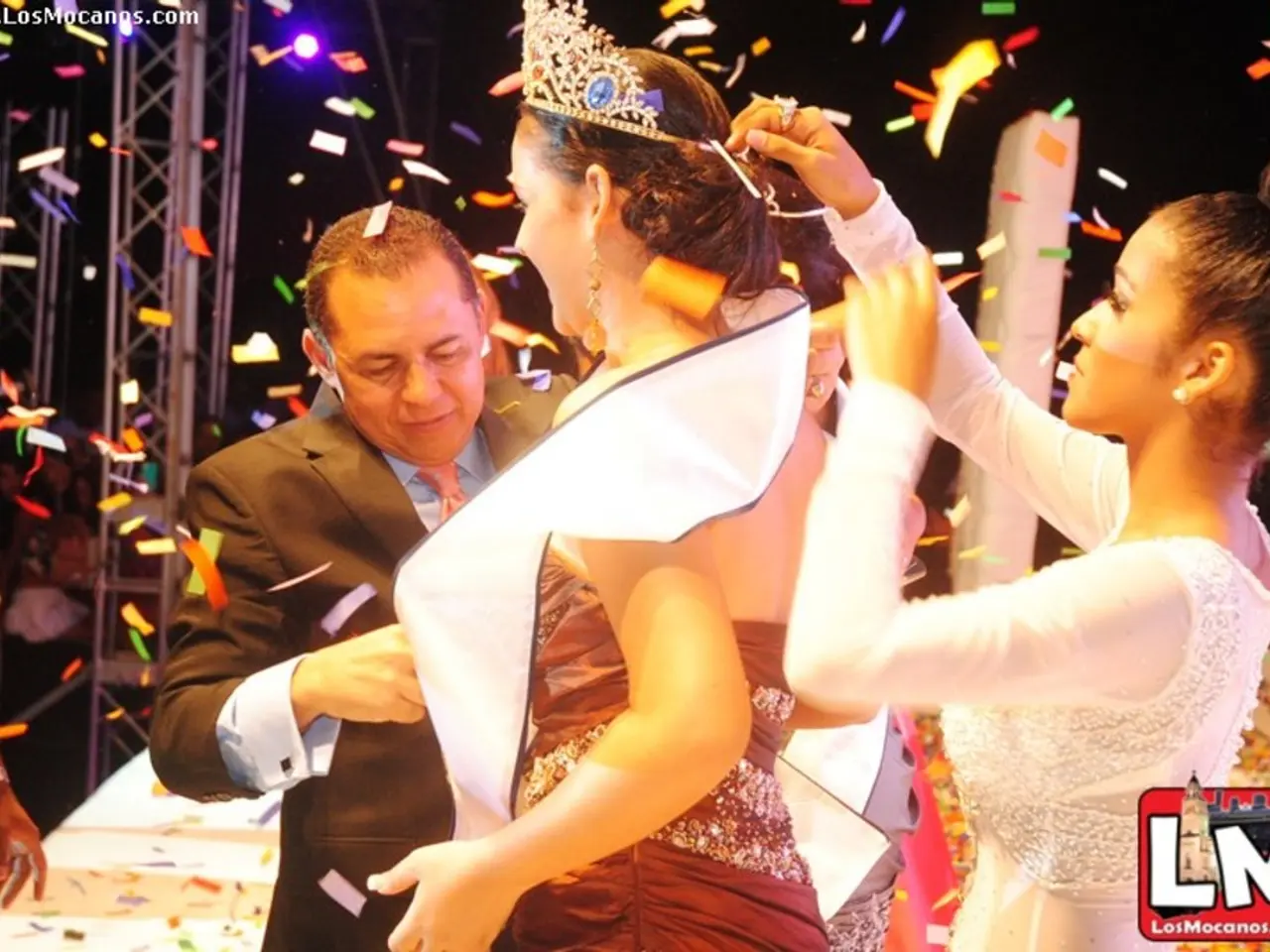Preview: Exclusive Scene from Outrageous's Season One Finale Now Available
The much-anticipated finale of the BritBox series, Outrageous, airing on July 16, delves into the controversial lives of the Mitford sisters, a family known for their eccentricity and political extremism.
Diana Mitford, portrayed by Joanna Vanderham, first married Bryan Guinness, a wealthy young aristocrat, at the tender age of 18, becoming a society figure and hostess to London’s literary elite. However, her life took a dramatic turn when, in 1933, she left Guinness for Oswald Mosley, leader of the British Union of Fascists (BUF).
The series depicts Diana's marriage to Mosley as a love story, with both characters being very much in love, despite the scandal and political backlash. The scene is described as "chilling" by the series creator, Sarah Williams, and the performances of Vanderham and Shannon Watson (as Unity) are described as beautifully nuanced.
Diana's marriage to Mosley solidified her public image as a fascist sympathizer. During World War II, she was interned for three years due to her support for Nazi Germany, and after the war, she was reviled by society at large and shunned by many former friends. Her marriage did not lead to Mosley becoming Prime Minister, as she had anticipated.
Unity Mitford, played by Watson, became infamous for her personal relationship with Adolf Hitler. The series portrays Unity as being in love (albeit unconsummated) with the Chancellor of Germany. Unity's infatuation with Hitler and the Nazi regime was extreme even among her family, earning her infamy and further stigmatizing the Mitford name.
The finale of Outrageous highlights the profound personal and social consequences of the sisters' political extremism. Both Diana and Unity were ostracized by much of British society and, at times, by their own family. Their actions contributed to the Mitford family’s reputation for eccentricity, scandal, and political extremism—a reputation that still lingers in public memory.
The family was notably divided: while Diana and Unity embraced fascism, other siblings, such as Jessica, became Communists, and Nancy was a celebrated novelist and critic of fascism. This ideological split within the family mirrored the broader political tensions of 1930s Europe.
Despite Mosley's failure to win over the British public, Diana continued to believe in him. Post-war, Diana and her husband were exiled to France. Unity attempted suicide after Britain declared war on Germany, shooting herself in the head; she survived but was severely injured and died several years later from complications.
The Mitford sisters’ choices exemplify how personal relationships and political convictions can dramatically alter both individual destinies and family legacies, resonating far beyond their own lifetimes. Their stories are frequently retold as cautionary examples of the allure and dangers of political extremism, and the family name remains associated with both glamour and infamy.
The finale of Outrageous series serves as a watch for viewers, shedding light on the art of storytelling about the Mitford sisters, showcasing their cultural impact and turbulent lives. The series delves into their travels in the world of politics and society, covering their extremist views and scandalous relationships.
The news of the sisters' actions reached public domains, causing entertainment debates and societal discussions regarding their choices and their influence on the political climate of the 1930s. The series portrays the Philanthropy aspect by indicating the impact of the sisters' actions on their family legacy and historical memory.
Despite the controversial lifestyle changes of the sisters, the series highlights their individual journeys through movies-and-tv, offering a nuanced portrayal of their personal lives and their engrossing relationships. The performances of the actors play a significant role in making these stories entertaining as well as thought-provoking.
Post-war, the Mitford family continued to make headlines due to the choices of the sisters, noting the profound and lasting consequences of their political extremism on the family name and their own destinies. The legacy of the sisters reminds us of the importance of critical thinking and the risks of political extremism, serving as a reminder in news and popular culture even today.






